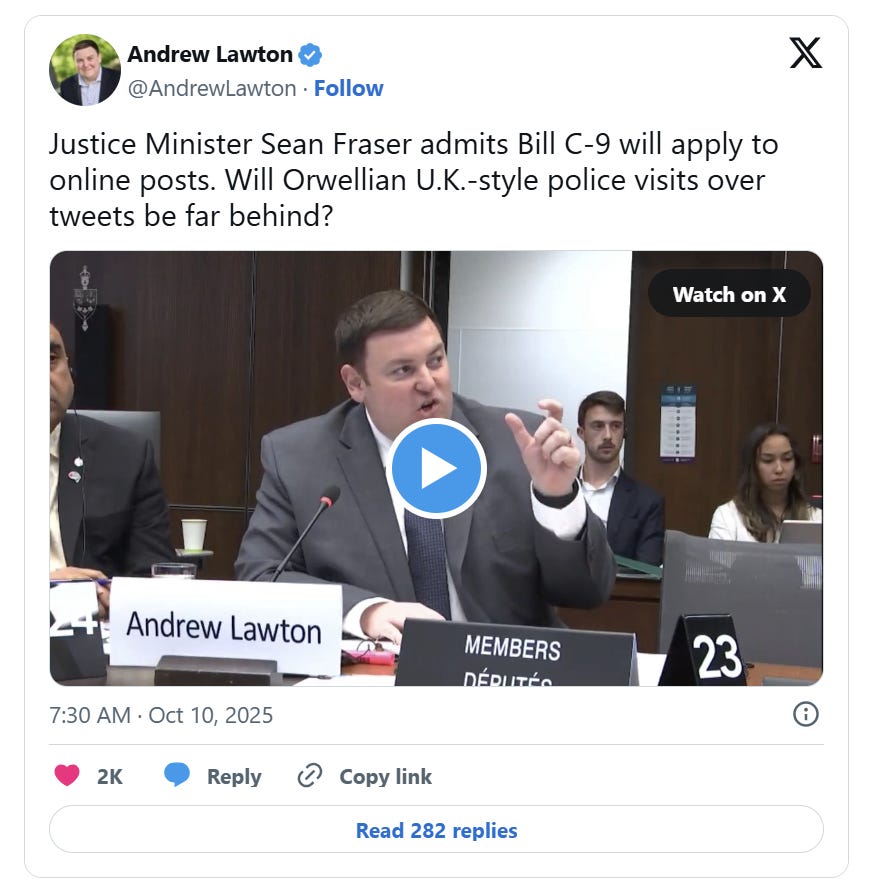Civil liberties groups warn Bill C-9 could jail Canadians for “feelings of hate”
Justice Minister Sean Fraser’s new hate-crime bill, C-9 has critics worried it might give judges and police power to put Canadians behind bars based on “feelings of hate” instead of actual crimes.
Justice Minister Sean Fraser’s new hate-crime bill, C-9 has critics worried it might give judges and police power to put Canadians behind bars based on “feelings of hate” instead of actual crimes.
At a House of Commons Justice Committee meeting, Conservative MP Andrew Lawton questioned whether the Combatting Hate Act would allow online speech to be prosecuted under new “hate-motivation” provisions. Fraser confirmed the bill “will apply equally online as it does in real communities,” meaning social media posts could fall under its scope.
Lawton accused the government of blurring the line between words and crimes.
“We are walking into dangerous territory when Parliament empowers the courts to decide what Canadians feel,” he said.
The bill creates a stand-alone hate crime category for any offence “motivated by hatred,” with penalties up to life imprisonment in serious cases. It also makes it illegal to display or post symbols “principally used by, or associated with, a listed entity,” including terrorist groups. Critics say this language could target historical or artistic expression.
Civil liberties groups are concerned about how the law defines hate, as Bill C-9 describes it as “detestation or vilification stronger than disdain or dislike,” leaving judges to decide what qualifies.
John Carpay, president of the Justice Centre for Constitutional Freedoms, said the vague definition turns emotion into a crime. “Bill C-9 declares that the illegal emotion of ‘hate’ is something stronger than dislike or disdain,” he wrote in the Epoch Times. “Ultimately, the muddied waters of Bill C-9 still leave the existence of ‘hate’ to be decided subjectively by police, prosecutors, and judges.”
Another major change is the removal of a safeguard that required the attorney general’s consent before hate-propaganda prosecutions could proceed. Under Section 3, that oversight is repealed, meaning police and Crown attorneys can act independently.
Carpay called it a “green light for politically motivated prosecutions,” while Lawton said it “puts enormous power in the hands of prosecutors to decide who is hateful and who is not.”
Fraser defended the bill as a “modern update” to ensure crimes “motivated by hate are treated with the seriousness they deserve.” He rejected suggestions that it criminalizes opinions, insisting that “acts of hate, not ideas, are the target.”
The bill remains before the Justice Committee for clause-by-clause study before returning to the House of Commons later this fall.





Largest source of hate originates from the Liberals, NDP and public sector unions.
Will Canada imprison them?
This bill has to be stopped